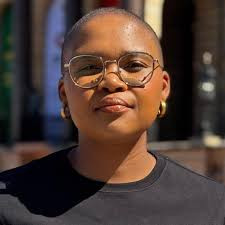
AROUND 2021, I began to feel deeply unsettled by a growing phenomenon in South African newsrooms: Black African women were leaving the industry.
I started scanning mainstream newsrooms, particularly in print and digital, and I struggled to find veteran black African women journalists still occupying those spaces. While women of other races remained visible and established, black African women were absent. It worried me.
What was driving these women out? I sat with that question for a long time.
As a black African woman journalist, who has worked in South Africa’s mainstream newsrooms for 15 years, I cannot pretend I did not know the answer. Some of the women who left are my friends.
I know what pushed them to seek opportunities elsewhere. I have even tried to leave the newsroom myself, once or twice, but it never quite worked out.
Recently, I returned from a three-month fellowship at the Reuters Institute for the Study of Journalism (RISJ) at the University of Oxford, where I explored this very question. My project: What It Means to Be a Black African Woman Navigating South African Newsrooms, was published a month ago.
While I had my suspicions about the reasons behind this exodus, I knew I needed to hear directly from the women themselves. So, I interviewed 10 black African women journalists, some who have left the industry, and others who are still practising.
What I found was sobering.
- Invictus to finally start drilling
- Dave Chappelle: US comedian attacked on stage in Los Angeles
- Invictus to finally start drilling
- Act on Pandora Papers expose
Keep Reading
For many of the women I spoke to, leaving journalism was not about losing passion for the work. It was about survival.
One woman, MT, shared that after leaving the newsroom, she faced challenges in her new job. Her father suggested she considers returning to journalism. Her response was piercing: “I would rather die than go back to the newsroom.”
This was someone whose childhood dream had been to become a journalist. But by the time she left, the industry had broken her so deeply that she could not imagine going back.
Another former reporter left after a traumatic pregnancy, during which her medical needs were ignored, putting her unborn child’s life at risk.
One woman walked away after more than a decade of having her authority constantly undermined. Others left quietly, worn down by years of proving themselves without ever being fully recognised. And yet, almost all of them still speak about journalism with love.
Many have gone on to build successful careers elsewhere. Their departure has left a void.
The absence of black African women in the newsroom or senior editorial roles is not just about visibility. It shapes coverage, perspectives, and the future of the industry. During a radio interview after my paper was published, I said: The issue is not just about occupying seats of power. It is about who gets to decide which stories matter.
A white woman or a black African man may not instinctively champion issues affecting black African women, because those issues are not top of the mind for them. I have seen this first-hand. A story about femicide in a rural village, for example, is far more likely to be pursued by a black African woman editor than anyone else.
When I embarked on this journey, I expected some interest from industry colleagues. I thought it would spark a few conversations and that would be it. I was wrong.
The response has been overwhelming. Colleagues have reached out via text, social media, and in person to say: “Thank you for telling our story” or “Thank you for seeing us.”
Former black African women journalists, women I looked up to when I was starting out, have told me I have done important work, work they never had the courage to bring to light while they were still in the newsroom.
One white woman colleague, the only one, by the way, approached me to thank me for educating her and helping her recognise blind spots she had not seen because of her privilege.
But black African women from other industries reached out to say I had also told their story.
What was also sobering was how other people told me that they naively did not think journalists also face challenges in their sector.
This work has brought to the public discourse the reality of people who often champion the stories of others, but have no one telling their own stories.
The feedback has affirmed what I suspected: This story has been waiting to be told.
I have also received messages from journalists across the continent, from Namibia, Kenya, Zambia and Zimbabwe. Their words affirmed that the struggles of black African women in media are not confined to South Africa. They are universal.
But above all, it is a call to action.
We can no longer wait for someone else to tell our stories. We must speak boldly, truthfully and unapologetically about our experiences, not out of bitterness, but out of necessity.
Because if we do not write our stories, who will?
Macupe is a South African journalist currently working as the deputy politics editor at News24 and a Reuters Institute for the Study of Journalism fellow.











